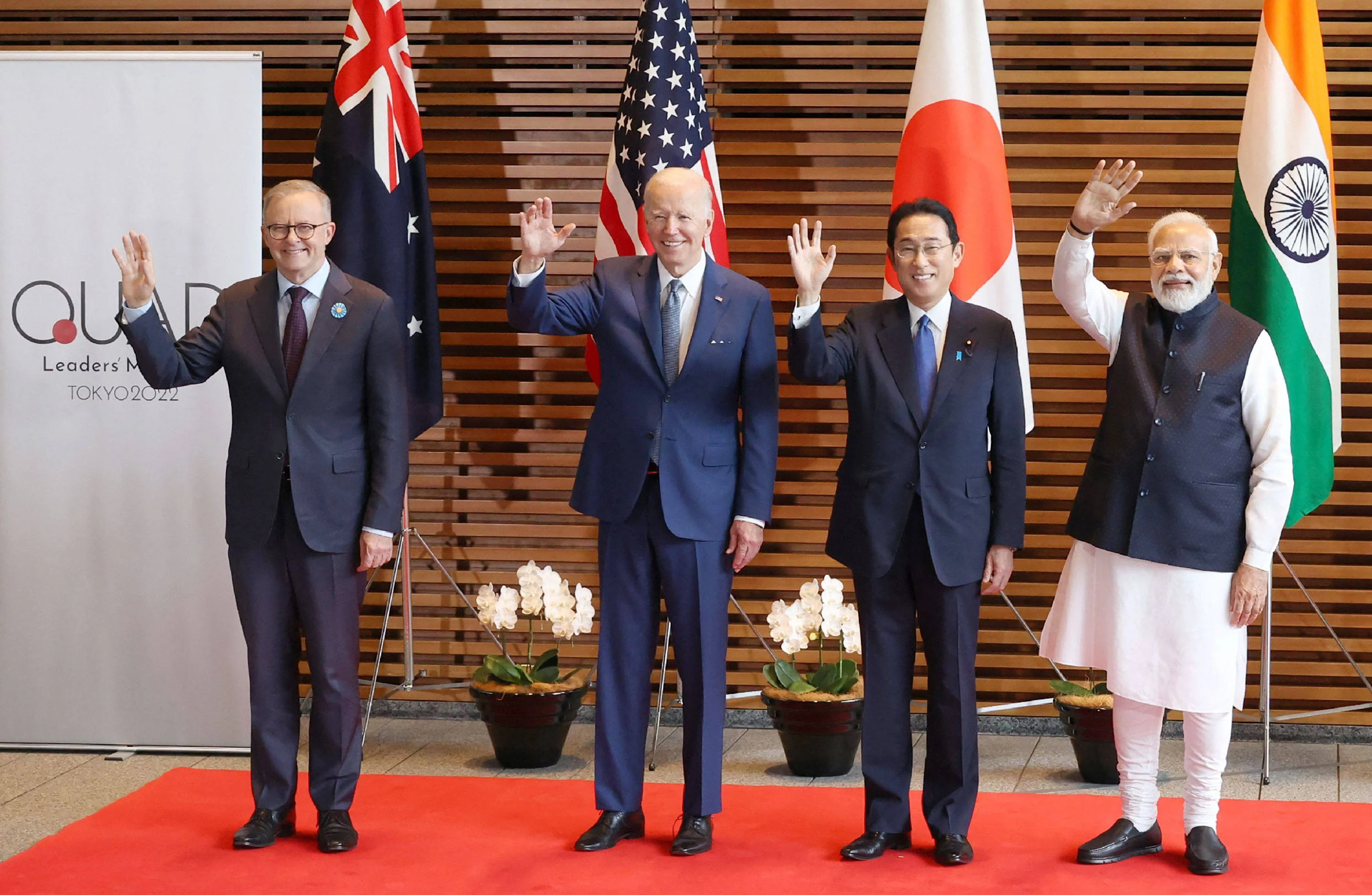By Zhao Ziwen
Copyright scmp

The US’ waning interest in regional relations and its weakening ties with India are eroding American-led alliances in Asia, creating openings for China, a prominent Japanese defence researcher has warned.
Masayuki Masuda, head of the China division at Japan’s National Institute for Defence Studies, a research body under the Ministry of Defence, said the shift was already affecting key groupings such as the Quad and raising alarm in Tokyo.
“[Regional alliances] are one of the biggest sources of impact – Quad and Aukus, especially Quad,” Masuda said on the sidelines of the Beijing Xiangshan Forum on Wednesday.
“From a Japanese perspective, the Quad is one of the major diplomatic tools to maintain a balance against China, with Australia, India, Japan and the United States.
“But because of [US President Donald] Trump losing interest in that framework, and the US-India deteriorating partnership, Trump decided not to attend the Quad summit, which was to be held in New Delhi. That would be a concern that might be potentially dangerous from the Japanese perspective.”
The Quad – short for Quadrilateral Security Dialogue – brings together Australia, India, Japan and the US.
It was first proposed by late Japanese prime minister Shinzo Abe in 2007 but only began to gain momentum under the administration of former US president Joe Biden as part of his Indo-Pacific strategy to counter China’s influence.
The leaders of the grouping were expected to meet in Delhi later this year at an undisclosed date but Trump reportedly cancelled his attendance just days after Indian Prime Minister Narendra Modi went to China for the Shanghai Cooperation Organisation summit earlier this month.
At that gathering, Modi tweeted about his close interactions with Russian President Vladimir Putin, with photos of hugs and the two sharing a car ride seen by some as telegraphing Indian discontent towards the US administration.
Trump’s decision reflects broader uncertainties in ties between the two nations, with Washington imposing a 50 per cent tariff on India as a punitive measure over Delhi’s purchases of Russian oil. The duties were among the highest slapped by the White House on an Asian nation.
Masuda warned that China could try to capitalise on the rift, but that a full recovery in China-India ties might “take some time”.
Since Trump’s second term, Washington has put its networks of alliances – from multilateral blocs to bilateral partnerships – under pressure, insisting that its partners increase their military spending and threatening trade restrictions.
Still, Masuda expressed confidence in the US-Japan partnership, saying their “national security concerns” and “alliance cooperation” remain aligned, along with those of some other “regional countries”.
For example, Washington opened a new joint command centre in Japan in March and deployed its latest intermediate-range missile system, the Typhon, earlier this month, efforts that drew criticism from Beijing.
On Taiwan, Masuda said Tokyo was monitoring two factors from Beijing: its ability and its intention.
“China’s military muscle is becoming stronger and stronger, and China said that it might be a deterrent, but its great military muscle is always there, surrounding Taiwan,” he said, adding that this situation might be “a kind of trigger of an escalation of military conflict”.
Beijing regards Taiwan as part of China that must be reunified, by force if necessary. Most countries, including Japan and the US, do not recognise it as an independent state, though Washington is committed to providing arms for the island’s defence and opposes any attempt to take it by force.
Masuda added that even as Prime Minister Shigeru Ishiba stepped down, with a more conservative successor likely, continued communication on security and defence was essential to prevent miscalculation.
“In order for people to enjoy security, safety and prosperity, we need stability in our security relations between Tokyo and Beijing. So what we should do is at least crisis management,” he said.
“Without healthy communication, politically and diplomatically, and between the security practitioners, even a small accident would be escalated into open conflict.”
The Xiangshan forum is China’s biggest annual defence conference, and Japanese military representatives were noticeably absent this year.
The forum came as China marked the end of the second world war and its victory over Japan 80 years ago.
Those commemorations included a high-profile Victory Day parade on September 3 and a speech at the forum by Chinese Defence Minister Dong Jun, in which he referred to the Mukden Incident on September 18, 1931, the start of Japan’s invasion of China.



